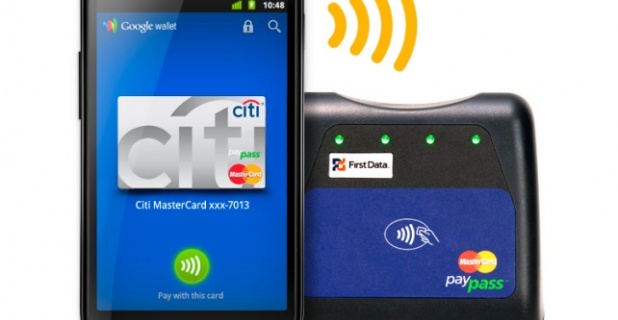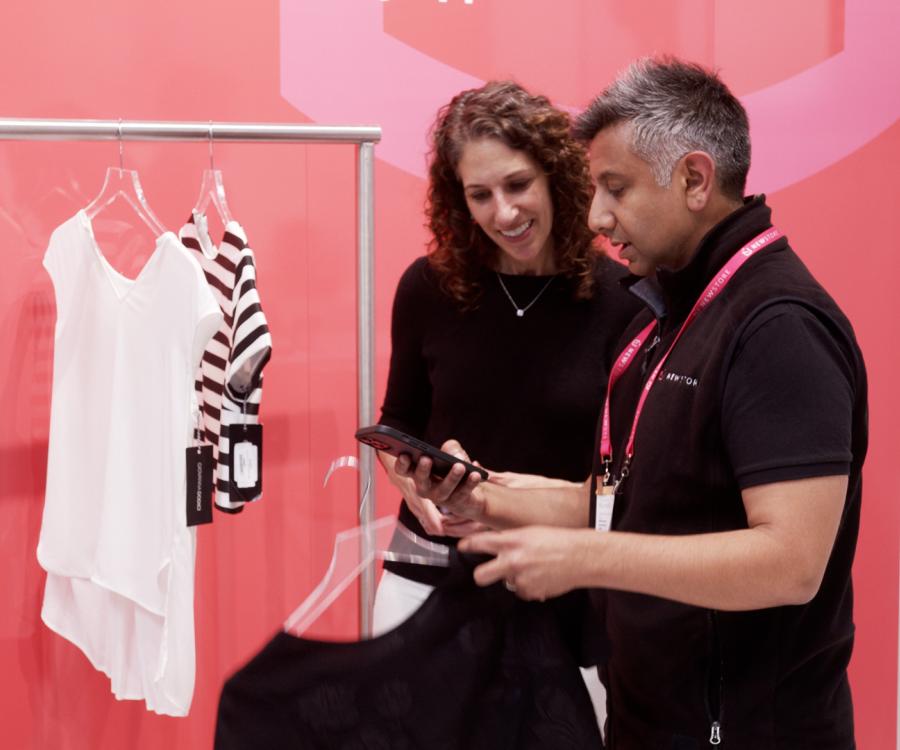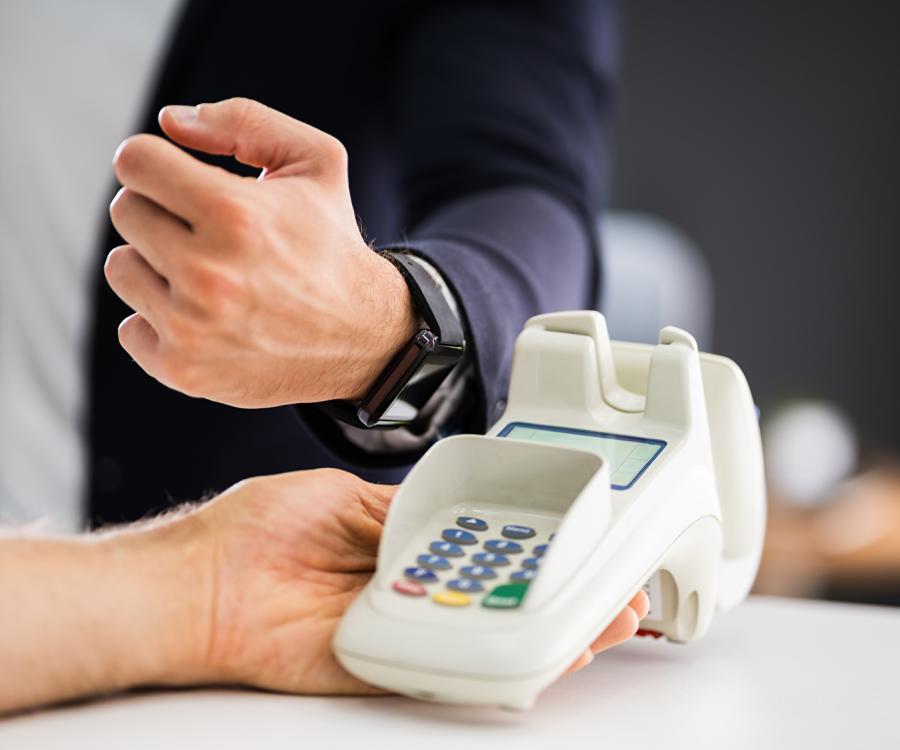The EHI Technology Days in Cologne, Germany, delivered a taste of the upcoming EuroCIS. One important topic in Düsseldorf is going to be cashless payment. For a long time, its share in German retail has stagnated at just over 40 percent. Now “mobile money” is hitting stores. But retailers are spoilt for choice: cards and cell phones with a wireless chip competing against cell phones that also turn into wallets without a chip.
Two press conferences attracted a great deal of attention in Cologne: Itellium and Paypal showcased mobile payments and the German savings banks (“Sparkassen”) advertised cards with wireless chips. This clearly illustrated the retail dilemma: it is still not clear which system will become accepted, especially since there are also other players. Retail will probably have to invest in several systems. In any case, putting a card into the terminal at the checkout counter will soon be obsolete. The future is contactless, but it’s not just technology that plays a role in this. Just like with the money card, direct debit and credit card – this is once again about bank charges.
What fees do retailers have to pay?
Years ago, the money card was supposed to push back the cash portion: by simply paying small amounts with a card without having to sign and without entering a PIN. Yet aside from cigarette vending machines where the card is simultaneously used to check age, the gold chip barely prevailed as a means of payment. From the get-go retail complained about unattractive bank fees and continued to favor the relatively inexpensive electronic direct debiting scheme (ELV). Banks hoped for its end with the standardized European payment area SEPA. ELV however survived as an isolated German application – at least until now.
Credit cards, widely used abroad, always led a shadowy existence in Germany. Almost everybody owns a debit card – in essence a checking account (“giro account”) in card format. Credit card companies always had a hard time, especially since they barely had any influence on fees payment service providers and banks are charging. These could now drop believes Jürgen Schübel of Mastercard in our interview on this focal topic. The more cards are being used, the more fees will come under pressure. Visa Europe also wants to strongly invest in mobile payment.
Meanwhile the lines between credit and debit cards are blurry. Direct banks offer their customers visa cards with no credit function to supply cash at automated banking machines. Credit card companies open up new possibilities with new cards. They hope for a break-through of “mobile money“. They offer cards that can be contactless used via near field communication. This NFC technology is already included in payback cards equipped with payment feature and also in the”Miles&More“cards by Lufthansa. Both credit and debit cards can be equipped with near field communication, but cell phones or key fobs can also transmit with it.
Online services push their way into retail
Credit or debit cards – that is an important question. Card or cell phone – that’s another question, because the cell phone can also turn into a mobile wallet without a chip. During the EHI Technology Day in November in Cologne, Itellium and Paypal announced a strategic partnership. With it, the online payment service now also pushes its way into local retail in Europe, where Paypal has already achieved banking status. Customers are meant to pay with their Paypal account. Here the cell phone displays a barcode that the retailer scans at the checkout. The customer doesn’t have to divulge any bank details and the retailer obtains a payment guarantee by Paypal.
“mpass“, a joint service by cell phone giants Telekom, Vodafone and Telefónica from Spain with its German daughter O2, also works without banks. Customers can make payments via their cell phone bill or prepaid card. Alternatively, invoicing through a checking account is also possible. Paying with “mpass“ works like this: enter the cell phone number and the “mpass“ PIN, confirm the subsequent SMS (text message) and you are done. The retailer receives his money, but no bank data. “mpass“ was developed to make payments in online shops and is now scheduled to also hit stores.
Another Internet player also pushes its way onto the market: Google and its payment service called “Google Wallet“. Customers approve payment with their PIN on their Smartphone, which then transmits the transaction data via NFC to the retailer. The first cell phone equipped with NFC is the”Nexus S“ model by Samsung. In addition, Google customers need a MasterCard credit card account. Payment is settled with its “PayPass” payment system. Although Google is not charging any fees for this, it utilizes the data for targeted advertising. According to Google, “Wallet“ could also serve as a discount card. Consumer protection agencies criticize this data acquisition and competitor Paypal sues Google because it poached managers.
NFC for cards and cell phones
By now radio technology is available in a few Android Smartphones. In 2012 more devices with a chip by different manufacturers are supposed to hit the market. Apple and Microsoft reportedly also want to hop on board and incorporate NFC into their ”Windows Phone“ and ”iOS“ equipment .”Blackberry“ manufacturer RIM together with Telefónica is testing NFC. The market share for NFC equipment should rapidly increase. For now however there are far more plastic cards with a wireless chip.
The “girocard“ is also being remade. The successor to the Euro debit card (“Euroscheckkarte“) now also gets a NFC chip. As their first partner in German retail sales, the German saving banks were able to win over the Douglas holding. They reported this during the EHI Technology Days. Aside from the 446 Douglas perfumeries, until the end of 2012 the nearly 700 nationwide stores of Thalia, Christ, AppelrathCüpper and Hussel will also be equipped with new card terminals. All are part of the same holding company. Amounts of up to 20 Euros can be directly debited from a previously stocked credit balance by simply presenting the “girocard“. In doing so, the money card is meant to be resurrected.
Step-by-step the approximately 45 million savings bank cards will be equipped with radio technology. Gradually there will be enough cards in circulation, so the required new card terminals or readers will be worthwhile. The remaining banks will likewise change over. Douglas hopes to gain “a significant speed-up of the payment process“ from NFC, but doesn’t just count on the ”girocard“. Credit card and Maestro customers can pay with “Paypass“ by MasterCard.
The interest of retail in the new payment options is big. However, for now it’s the large companies that test and introduce things. Owner-managed specialty shops will have to follow. The dm drugstore chain uses Paypass. Here you can pay up to 25 Euros without a PIN and signature. A comparable product by Visa is called “paywave“. Globus is testing mobile money; the real markets do so as well. Metro uses it in its “Future Store“ since 2008, now for the first time however with the new standard developed by the GS1 task force ”Mobile Payment“. The goal of this project is to develop a cross-industrial and standardized NFC payment system, which additionally is also meant to be applicable internationally. Esso wants the contactless money card by the saving banks, even though many sales amounts should be higher than the 20 Euro limit. At the EuroCIS further projects will very likely be introduced.
René Schellbach, First Publication: EuroCIS.com
18/1/2012










